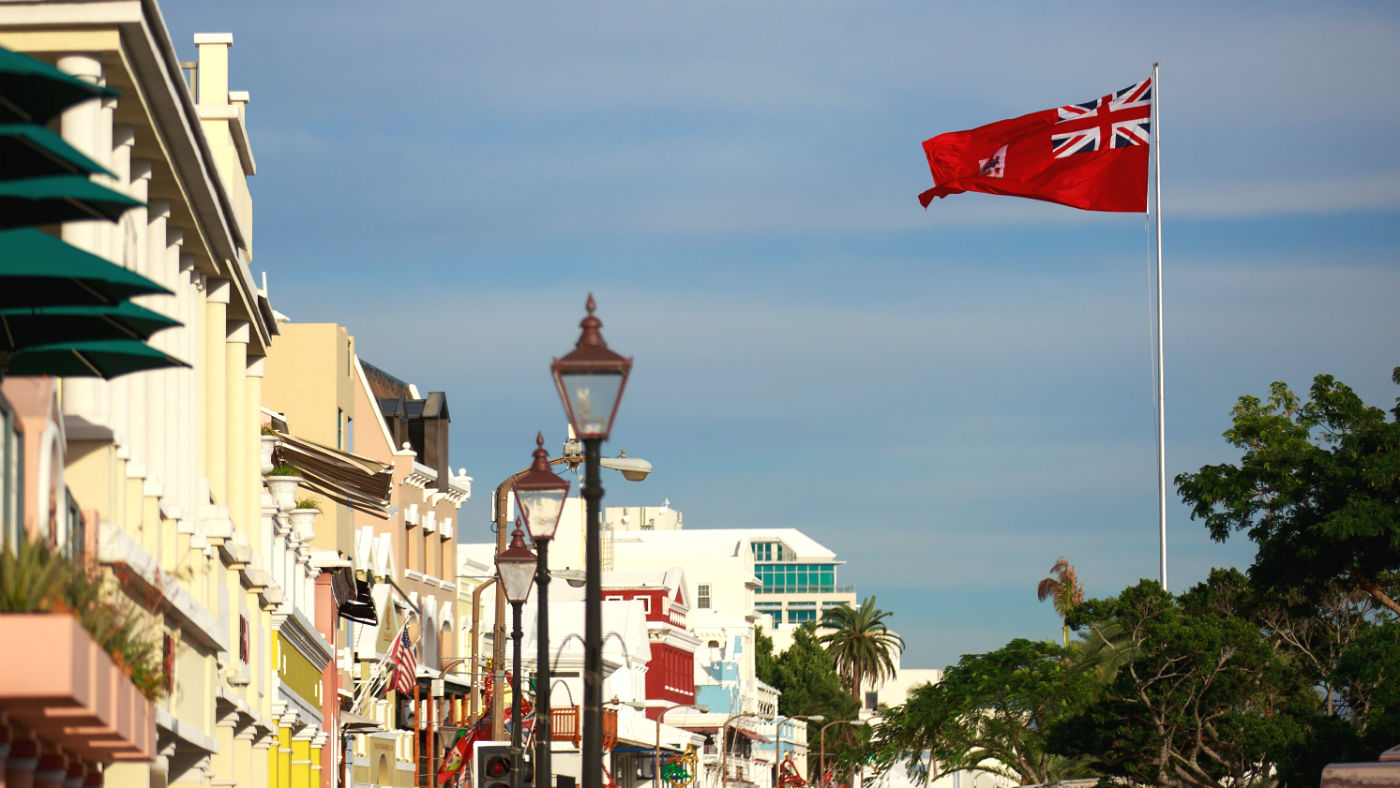UK under pressure after Bermuda becomes first country to repeal same-sex marriage
Government asked to explain why it gave permission for overseas territory to repeal LGBT rights

A free daily email with the biggest news stories of the day – and the best features from TheWeek.com
You are now subscribed
Your newsletter sign-up was successful
The Government is under pressure to explain why it let Bermuda become the first country in the world to repeal same-sex marriage laws.
The legislation was voted through by the island’s government and signed into law by its British diplomat governor, John Rankin. It reverses a British Supreme Court ruling last year which legalised marriages for all couples. Bermuda will now restrict them to civil partnerships.
The island’s home affairs minister, Walton Brown, said the new legislation would balance opposition to same-sex marriage on the socially conservative island with European court rulings that require recognition and protection for same-sex couples.
The Week
Escape your echo chamber. Get the facts behind the news, plus analysis from multiple perspectives.

Sign up for The Week's Free Newsletters
From our morning news briefing to a weekly Good News Newsletter, get the best of The Week delivered directly to your inbox.
From our morning news briefing to a weekly Good News Newsletter, get the best of The Week delivered directly to your inbox.
It is the first time any country in the world has voted to reverse a legal decision allowing gay couples to marry.
While the ruling is expected to affect only a handful of couples on the 60,000-inhabitant island, it has been seen as a symbol that LGBT rights are in retreat in some parts of the world.
The Foreign Office was forced to explain why it had allowed a British overseas territory to make a decision that runs contrary to the UK position.
Asked why the Foreign Secretary Boris Johnson had approved the move, Harriet Baldwin, a junior foreign office minister, said the Government was “obviously disappointed” with the repeal of the law but felt it had no choice.
A free daily email with the biggest news stories of the day – and the best features from TheWeek.com
“After full and careful consideration in regard to Bermuda’s constitutional and international obligations, the secretary of state decided that in these circumstances it would not be appropriate to use this power to block legislation, which can only be used where there is a legal or constitutional basis for doing so, and even then only in exceptional circumstances.”
It is a far cry from 2013 when former prime minister David Cameron spoke of his pride at legalising same sex marriage in the UK and said he wanted to “export” same sex marriage around the world so other countries could follow suit.
Baldwin went on to say that the ministers had limited powers over British overseas territories, which were “separate, self-governing jurisdictions with their own democratically elected representatives that have the right to self-government”.
This response drew a sharp rebuke from the opposition and even some in her own party.
Labour’s Chris Bryant said: “However the Government tries to dress this up, it is a backward step for human rights in Bermuda, and in the overseas territories.”
He said the change would undermine the UK’s ability to instruct foreign governments on the importance of LGBT rights and asked if it might even serve a precedent for other countries to repeal same-sex marriage laws.
The Guardian notes that one knock-on effect of the ruling is that Cunard and P&O ships registered in Bermuda can no longer hold same-sex marriages at sea.
-
 What to expect financially before getting a pet
What to expect financially before getting a petthe explainer Prepare for your furry friend and your wallet
-
 Pentagon spokesperson forced out as DHS’s resigns
Pentagon spokesperson forced out as DHS’s resignsSpeed Read Senior military adviser Col. David Butler was fired by Pete Hegseth and Homeland Security spokesperson Tricia McLaughlin is resigning
-
 Colbert, CBS spar over FCC and Talarico interview
Colbert, CBS spar over FCC and Talarico interviewSpeed Read The late night host said CBS pulled his interview with Democratic Texas state representative James Talarico over new FCC rules about political interviews
-
 Epstein files topple law CEO, roil UK government
Epstein files topple law CEO, roil UK governmentSpeed Read Peter Mandelson, Britain’s former ambassador to the US, is caught up in the scandal
-
 Iran and US prepare to meet after skirmishes
Iran and US prepare to meet after skirmishesSpeed Read The incident comes amid heightened tensions in the Middle East
-
 Israel retrieves final hostage’s body from Gaza
Israel retrieves final hostage’s body from GazaSpeed Read The 24-year-old police officer was killed during the initial Hamas attack
-
 China’s Xi targets top general in growing purge
China’s Xi targets top general in growing purgeSpeed Read Zhang Youxia is being investigated over ‘grave violations’ of the law
-
 Panama and Canada are negotiating over a crucial copper mine
Panama and Canada are negotiating over a crucial copper mineIn the Spotlight Panama is set to make a final decision on the mine this summer
-
 Why Greenland’s natural resources are nearly impossible to mine
Why Greenland’s natural resources are nearly impossible to mineThe Explainer The country’s natural landscape makes the task extremely difficult
-
 Iran cuts internet as protests escalate
Iran cuts internet as protests escalateSpeed Reada Government buildings across the country have been set on fire
-
 US nabs ‘shadow’ tanker claimed by Russia
US nabs ‘shadow’ tanker claimed by RussiaSpeed Read The ship was one of two vessels seized by the US military